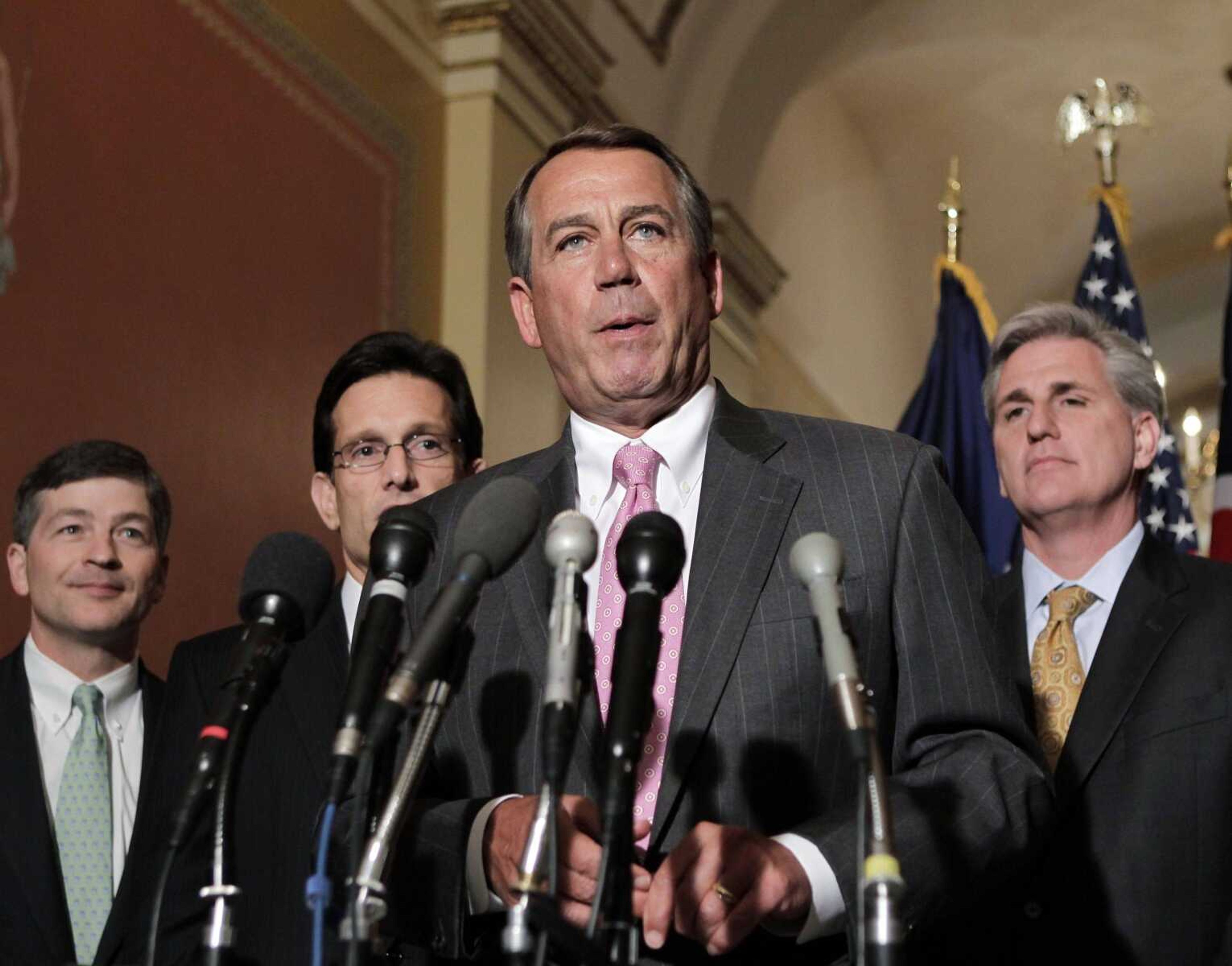Talks to prevent shutdown resume, 'making progress'
WASHINGTON -- Vice President Joe Biden reported "good progress" Wednesday in budget talks to prevent a government shutdown next week as congressional negotiators began work on a proposal for around $33 billion in spending cuts over the next six months -- considerably less than tea party activists demanded...
WASHINGTON -- Vice President Joe Biden reported "good progress" Wednesday in budget talks to prevent a government shutdown next week as congressional negotiators began work on a proposal for around $33 billion in spending cuts over the next six months -- considerably less than tea party activists demanded.
"There's no reason why, with all that's going on in the world and with the state of the economy, that we can't avoid a government shutdown," Biden told reporters after a meeting in the Capitol with Senate Democratic leaders.
The tentative split-the-difference plan would end up where GOP leaders started last month as they tried to fulfill a campaign pledge to return spending for agencies' daily operations to levels in place before President Barack Obama took office.
That calculation takes into account the fact that the current budget year, which began Oct. 1, is about half over.
The $33 billion figure, disclosed by a congressional aide familiar with the talks and confirmed by Biden, who used a measuring stick tied to Obama's budget instead of a current spending freeze.
The number is well below the $60 billion-plus in cuts that the House passed last month, but it still represents significant movement by Senate Democrats and the administration after originally backing a freeze at current rates. Under Biden's math, the White House is conceding $73 billion in cuts from Obama's requests, which contained increases never approved by Congress. Republicans originally wanted $100 billion in cuts using the same gauge.
Some tea party-backed GOP lawmakers want the original $100 billion. With a tea party rally set for Thursday on Capitol Hill, it's unclear how many of the 87 freshmen Republicans elected last fall could live with the arrangement between top Democrats and House Speaker John Boehner, R-Ohio.
Both sides said the figure under consideration is tentative at best and depends on the outcome of numerous policy stands written into the bill. Boehner spokesman Michael Steel said: "There's no agreement on a number for the spending cuts. Nothing is agreed to until everything is agreed to."
Biden agreed: "There's no deal until there's a whole deal."
"I'm glad that we're beginning to have some conversations," said Appropriations Committee chairman Harold Rogers, R-Ky. "We hope to make them fruitful. We don't want a shutdown, so we'll do the best we know how."
The legislation would bankroll the day-to-day operating budgets of federal agencies -- including the wars in Iraq and Afghanistan -- through Sept. 30, the end of the current budget year.
Connect with the Southeast Missourian Newsroom:
For corrections to this story or other insights for the editor, click here. To submit a letter to the editor, click here. To learn about the Southeast Missourian’s AI Policy, click here.









